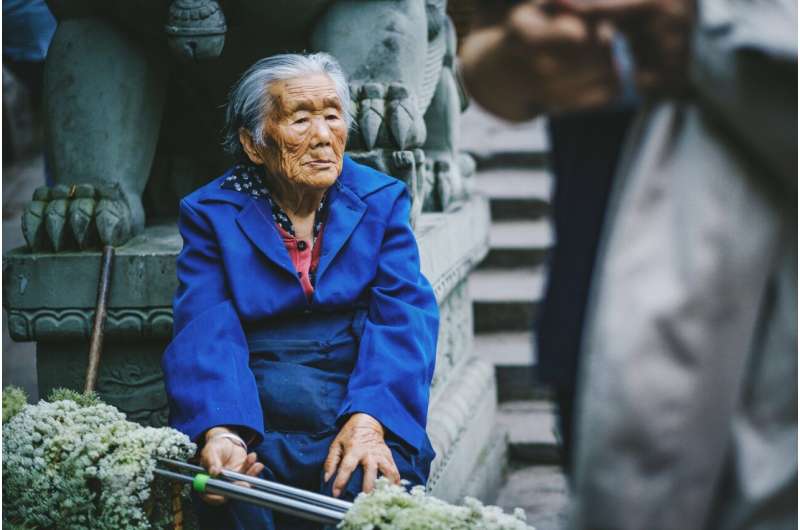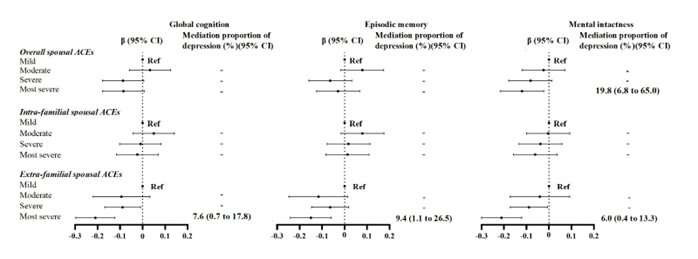This article has been reviewed according to Science X's editorial process and policies. Editors have highlighted the following attributes while ensuring the content's credibility:
fact-checked
proofread
Adverse childhood experiences found to contribute to later-life cognitive decline in women in China

Dementia and depression are two prominent clinical entities among the elderly worldwide—the situation in China is no exception. Dementia and depression affect 5.6% and 45.0% of elderly Chinese, respectively.
This circumstance is compounded by accelerating social aging. Against this backdrop, substantial pressures are irrevocably placed on health systems and individuals, especially for women, who are more susceptible to these disorders than men.
Many studies have shown that adverse childhood experiences (ACEs) are associated with a higher likelihood of developing cognitive decline and depression. Interestingly, ACEs that are related to the husbands have also been found to impact women's mental health. However, the definitive associations of spousal ACEs with women's cognitive decline and depression remain unclear.
This knowledge gap has prompted a team of researchers in China to explore the associations of own and spousal intra- and extra-familial ACEs with women's cognitive function.
Using data from the China Health and Retirement Longitudinal Study (CHARLS), which contains comprehensive information on individuals aged 45 and above across China, the researchers managed to gather information on ACEs, depression, cognitive function, and covariates of over 4,600 women aged 45 and older.

Through a series of analyses, the researchers found that women with extra-familial ACEs, including peer bullying, loneliness, and community violence, were at higher risks of developing poor global cognition, episodic memory, and mental intactness in old age, which was mediated by depression.
"Furthermore, we found significant associations between most severe spousal overall ACEs and women's poor mental intactness," shares lead author of the study Ziyang Ren, a Ph.D. Candidate at the Institute of Reproductive and Child Health, Peking University, Beijing, China.
"The spouses of individuals with ACEs tend to develop high levels of stress and doubt key personal values and assumptions about the world. 'Stress contagion' within couples, where one person's stress has a significant impact on other close members of the family, may also play a role."
The team reported their findings inGlobal Transitions. Notably, this is the first large-scale study of this nature in the country.
The findings support the fact that research on ACEs in China should consider the different sources of both intra-familial and extra-familial ACEs, and the importance of health intervention strategies to prevent cognitive decline, such as improving the relationship between couples and mental health for women with own or spousal ACEs, should be noted.
"Considering the unique role of women as distinct from men in Chinese society and family, we need to explore the risk factors and interventions for their mental disorders from different life stages," adds the study's corresponding author, Jufen Liu, a research associate professor at the Institute. "Given the high prevalence of own and spousal ACEs in Chinese women, promoting their mental health can effectively mitigate their cognitive decline and contribute to the construction of healthy aging in China."
More information: Ziyang Ren et al, Association of own and spousal intra- and extra-familial adverse childhood experiences with cognitive function and the role of depression in middle-aged and older Chinese women, Global Transitions (2022). DOI: 10.1016/j.glt.2022.12.001


















